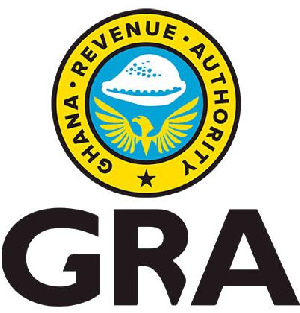
Employees in Ghana are required to submit yearly income tax returns to the Ghana Revenue Authority (GRA) by April 30, 2024, according to Eric Anthony, Supervisor, Chief Revenue Officer, for Upstream Petroleum Audit at the Large Taxpayers Office of the GRA's (GRA) Domestic Tax Revenue Division.
Employees were not expected to file their own returns under Section 125 of Act 896, but as a result of Amendment 924, they must now do so four months after the end of the base period, which for all employees is December 31.
According to Regulation 12 of L.I. 2244, the employer must instead submit an Employer's Annual Tax Deduction Schedule to the Commissioner General that details the amount of monthly Pay As You Earn (PAYE) tax payments they have made for each employee, their names and Taxpayer Identification Number, and the salaries and other benefits they have paid, among other things.
The PAYE tax is a tax that is paid by the employer on behalf of the employee after being subtracted from the employee's total income from employment. The entire income of a person who works is subject to taxation, regardless of whether it is paid for previous, current, or potential (future) employment, whether it is obtained in cash or in kind, and whether it is received directly by the employee or indirectly on his or her behalf.
On or before the fifteenth day of the month after the month in which the deduction was made, employers are required to complete monthly PAYE returns and pay the relevant PAYE taxes for all of their employees, whether they are temporary, part-time, or permanent.
During a webinar hosted by the UK-Ghana Chamber of Commerce and PwC Ghana on "Navigating Payroll Tax Compliance in Ghana: A Comprehensive Guide for Businesses," Mr. Anthony clarified that while the employer is responsible for the monthly filing of PAYE taxes, the employee is responsible for filing the annual personal income tax returns.
Employers are responsible for paying their employees' pension payments on the fourteenth of each month, according to Nii Amu Otoo, another panellist on the webinar and the Head of the Standards & Enforcement Unit at the National Pensions Regulatory Authority (NPRA) of Ghana.
A surcharge of 3% of the monthly contribution that should have been paid is applied if you don't make those contributions, and it keeps compounding until it is paid. You will be charged and served in court to pay the contribution plus surcharge, along with a penalty as specified by law, if NPRA is unable to collect those funds from you. Every month you default, you could be fined up to 2,000 penalty units, which is equivalent to GH¢24,000, Mr. Otoo said.
Ghana's Employment Income Tax
Mr. Anthony claims that one of the three sources of income taxed in Ghana is income from employment.
According to Regulation 3 of the Income Tax Regulation, 2016 (L.I. 2244) and the Income Tax Act, 2015 (Act 896), the GRA mandates that employers withhold the proper taxes from qualifying cash payments made to employees during an assessment year (January 1–December 31) in order to satisfy the employee's employment tax liability for that year. Salary, wages, leave pay, fees, commissions, and gratuities are all considered acceptable cash payments.
There are other types of employment income that are not to be taken into account when calculating PAYE taxes, even if they are taxable as well, such as overtime, bonuses, official housing, and official motor vehicle (for private use) advantages. These include any payment made to an individual on behalf of their employer for expenses that are necessary for the employer's legitimate business needs. Redundancy pay, such as the discharge or payment or reimbursement of medical, dental, and health insurance expenses or benefits on equal terms, and employment income subject to final withholding payment are also excluded from the calculation of employment income for PAYE taxes.
A benefit that is likewise tax-exempt is the sum of the Tier 1, 2, and 3 contributions, which cannot exceed 35% of an employee's base pay. If an employee withdraws money from a personal pension fund investment before the statutory retirement age because they lost their permanent job because of COVID-19, this is also considered an employment-exempt income.
Observing Ghana's Payroll Tax Laws
Even while I acknowledge that taxes are a challenging issue, Mr. Anthony acknowledged that they are a necessary cost of living in a civilised society. Therefore, it is crucial that we treat our tax issues with seriousness.
He encouraged any taxpayers who encounter difficulties adhering to tax regulations to contact the GRA online or in person at their offices. "It is crucial to remember that you avoid all possible penalties and interest when you are in compliance with your taxes, and in the unlikely event that you are also not prosecuted."
In order to make sure that the tax rates being applied in organisations are in line with Ghana's tax laws, Franklyn Mensah, Finance Director (Ag) at G4S Security Services (Gh) LTD. and webinar panellist, also advised companies to get expert advice.
Businesses can get a health check on payroll taxes once a year by consulting their tax experts. This allows you to identify trouble areas early on and concentrate on them. The tax experts can also offer suggestions on how to enhance your procedures in order to reduce your tax obligations. Keep in mind that wasting time can result in fines and penalties. We must move quickly," Mr. Mensah said.
Gifty Matey Trebi, an Associate Director at PwC Ghana, moderated the webinar, which also covered income tax rates, Ghana's three-tier pension plan, and the taxation of alternative sources of job income, including the usage of domestic help.